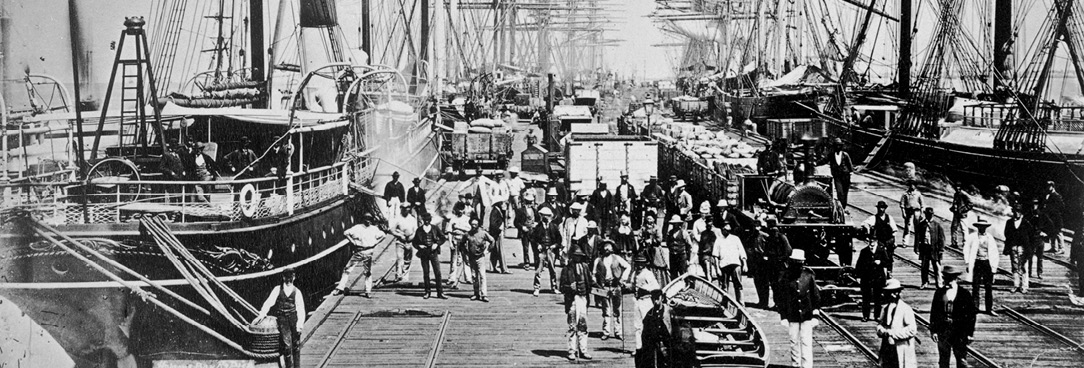Last updated:
What do I need to know?
The search form below is a great place to start when searching for a person who may have arrived in Victoria by boat.
Indexers transcribed the names and ages recorded on lists of passengers aboard ships which arrived at Victorian ports from overseas, between 1852 and 1923 (for passengers post 1923, try searching records of the National Archives of Australia). The lists, which were submitted to Victorian customs officials on arrival, are sometimes called “unassisted passenger lists”, as immigrants funded the cost of their own voyage.
How do I search?
- Try different spelling variations, or think about how a name might have been misspelt
- Search by any or several keywords you may know (for example, the name, year, ship, and so on)
- Some names may be abbreviated (for example, ' J' Smith or simply 'Mr' Smith)
- Note that young children are sometimes listed as "child with" and their parents' surname.
- For names with apostrophes, type the name as one word instead (for example, instead of O’Mara, type the name as OMara) or use a wildcard (an asterisk) where the apostrophe would otherwise be (*Mara).
What are in these records?
The records generally include the following information about each passenger:
- first name and surname
- marital status
- age
- sex
- ports of embarkation and disembarkation
Also frequently recorded are:
- nationality
- occupation
Information recorded about the ship includes:
- name of ship’s captain
- dates of departure and arrival at each port
- total number of passengers
There are several abbreviations used in these records.
An 'A' in the age column indicates the person was an adult, an 'I" indicates an infant.
In the port of origin field, 'B' indicates British ports, 'N' indicates New Zealand Ports, and the remainder are designed 'F' for Foreign ports.
Find passengers in these lists
About these records
Inward overseas passenger lists are sometimes called “unassisted passenger lists”, as immigrant funded the cost of their own voyage. These records contain passenger details usually including their occupation and nationality.
Next Steps
Material in the Public Record Office Victoria archival collection contains words and descriptions that reflect attitudes and government policies at different times which may be insensitive and upsetting
Aboriginal and Torres Strait Islander Peoples should be aware the collection and website may contain images, voices and names of deceased persons.
PROV provides advice to researchers wishing to access, publish or re-use records about Aboriginal Peoples
